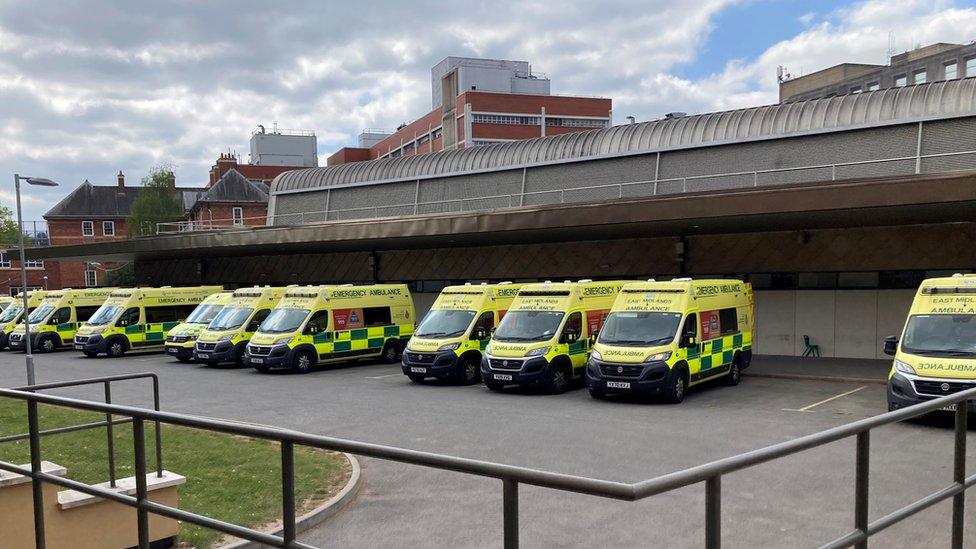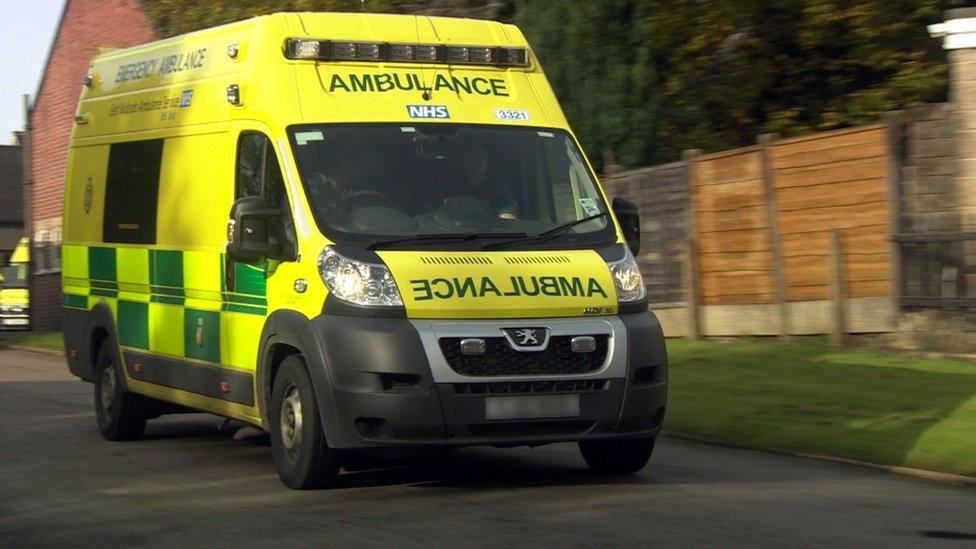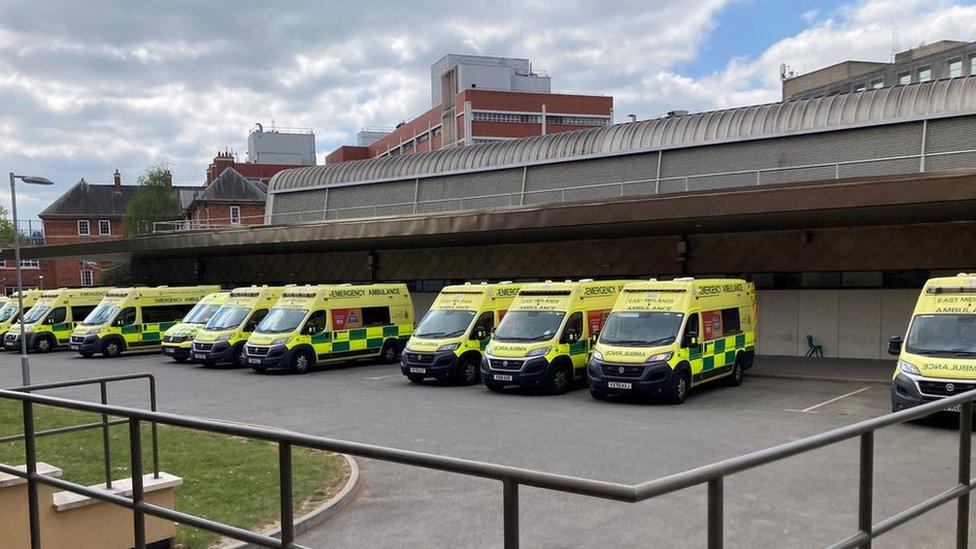Winter A&E pressures have 'demoralised' ambulance workers
- Published

The paramedic, who has asked to remain anonymous, often works 14-hour shifts with no break, he says
A paramedic says he and his colleagues have become "demoralised" by the "horrendous" situation staff and patients have experienced this winter.
The East Midlands Ambulance Service (EMAS) employee told the BBC his role had become "very disheartening".
There had been occasions where there were no ambulances to attend cardiac arrest calls due to a shortage of resources, he said.
Health bosses insisted the wellbeing of staff was among their "top priorities".
'Not fit for purpose'
The Leicestershire paramedic, who has asked to remain anonymous, said he recently spent seven-and-a-half hours stuck outside a hospital, unable to hand over a patient as A&E capacity was full.
"The situation is horrendous," he said. "We are facing long waits outside the hospital and when the patient finally gets in, [they go] into a small pod that's not even within the hospital building itself. It's not really fit for purpose.
"The walk-in at A&E is full by 5pm to 6pm with patients sitting on the floor. Overall it has progressively got worse - there are longer waits on ambulances, higher numbers of inappropriate emergency calls, no room for patients to be moved on to wards or discharged back into the community."
It comes shortly after hospitals in the region declared a critical incident due to ongoing pressures.
The paramedic added: "Ambulance staff are very demoralised and usually working 13 or 14 hour shifts with no break.
"While [waiting to hand over a patient at hospital recently], there were numerous calls for cardiac arrest and category one priority calls, but there were no resources available to help.
"That's very disheartening because our job is about trying to save somebody's life."
EMAS said its staff were working under "very difficult conditions" and it was doing everything it could to support them, including providing somewhere for a quick break and refreshment during shifts.
Ambulance workers will take part in strikes across England and Wales on 11 January, following walk-outs in December.
Bed blocking problem
Roy Lilley, a former NHS trust boss and health commentator, said this was the worst winter he had ever seen the health service encounter.
He told BBC Radio Leicester: "I first got involved with the NHS in my mid-20s. I'm in my mid-70s now, but I've never seen a winter like this - the whole system has ground to a halt.
"The principal problem that hospitals are facing are that a quarter of their beds are full now with people who are medically well enough to go home, but not medically fit enough to look after themselves."
Jon Melbourne, chief operating officer at University Hospitals of Leicester NHS Trust, said he was "grateful to everyone for their ongoing efforts".
"The safety of patients and the wellbeing of our colleagues remain our top priorities as we work to care for the people who need us," he added.

Follow BBC East Midlands on Facebook, external, on Twitter, external, or on Instagram, external. Send your story ideas to eastmidsnews@bbc.co.uk, external.
Related topics
- Published22 December 2022

- Published24 December 2022
